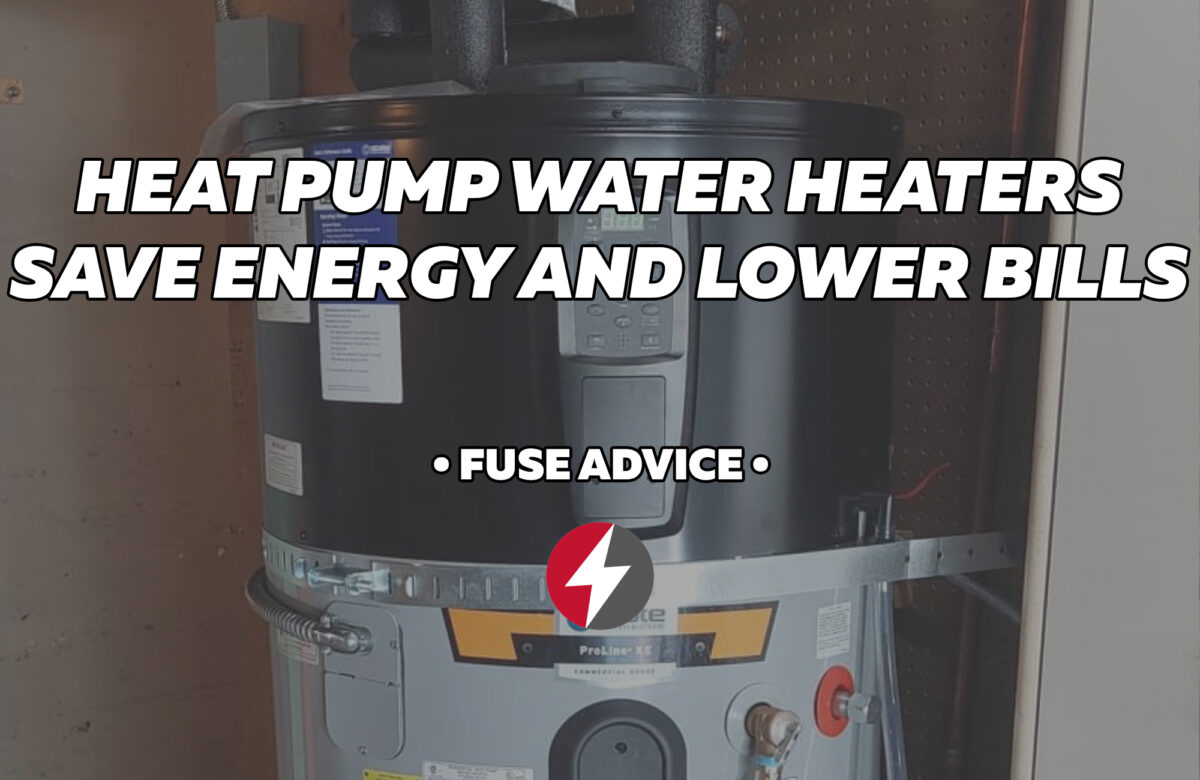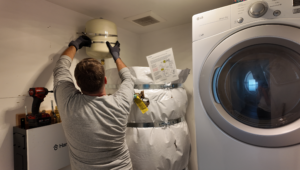When it comes to energy efficiency and reducing utility bills, heat pump water heaters are leading the way. These innovative appliances use advanced technology to extract heat from the air or ground and transfer it to heat water effectively. In this article, we will delve into the workings of heat pump water heaters, highlight their benefits, discuss their installation process, and explore why they are a cost-effective choice for your home.
What Are Heat Pump Water Heaters?
Heat pump water heaters are advanced appliances designed to provide hot water efficiently while consuming less energy compared to traditional water heaters. They utilize a heat pump technology that extracts heat from the surrounding air or ground and transfers it to the water stored in the tank. This process reduces the energy required to heat the water, resulting in significant energy savings and lower utility bills.
How Do Heat Pump Water Heaters Work?
Heat pump water heaters work on the principle of extracting heat from the air or ground and transferring it to the water. Here’s a simplified overview of their operation:
- The heat pump unit consists of a compressor, evaporator, condenser, and refrigerant.
- The evaporator absorbs heat from the air or ground, using a refrigerant that evaporates at low temperatures.
- The evaporated refrigerant is compressed by the compressor, increasing its temperature and pressure.
- The hot refrigerant then flows through the condenser, where it releases heat to the water stored in the tank.
- As the refrigerant loses heat, it condenses back into a liquid form and returns to the evaporator to repeat the cycle.
This continuous cycle of heat exchange allows heat pump water heaters to efficiently heat water with minimal energy consumption.
Currently we have a promotion for a new heat pump water heater installation — check out the details on our website and call (408) 898-1576 or drop an email at support@fuseservice.com to learn more.
The Energy-Saving Benefits of Heat Pump Water Heaters
Heat pump water heaters offer several energy-saving benefits that make them a preferred choice for homeowners. Here are some key advantages:
- High Efficiency: Heat pump water heaters are incredibly efficient, with an Energy Factor (EF) rating of over 2.5. This means they produce over two and a half times more energy output than the electrical energy they consume.
- Reduced Utility Bills: By using heat from the air or ground, these water heaters consume significantly less electricity than traditional resistance-based heaters, resulting in substantial cost savings on utility bills.
- Lower Environmental Impact: Heat pump water heaters utilize renewable energy sources, such as the ambient air or ground, reducing reliance on fossil fuels and decreasing greenhouse gas emissions.
- Consistent Performance: Unlike solar water heaters that depend on sunlight availability, heat pump water heaters operate consistently regardless of weather conditions, ensuring a constant supply of hot water.
Comparing Heat Pump Water Heaters to Traditional Water Heaters
When evaluating the efficiency and benefits of heat pump water heaters, it’s essential to compare them to traditional water heaters. Here’s a comparison table highlighting the key differences:
| Aspect | Heat Pump Water Heaters | Traditional Water Heaters |
|---|---|---|
| Energy Efficiency | High | Low |
| Energy Consumption | 2.5+ times less | More |
| Utility Bill Savings | Significant | Limited |
| Environmental Impact | Low | High |
| Dependence on Weather Conditions | None | Some |
As seen in the comparison, heat pump water heaters outperform traditional water heaters in terms of energy efficiency, cost savings, and environmental impact.
Factors to Consider When Choosing a Heat Pump Water Heater
When selecting a heat pump water heater for your home, consider the following factors:
- Climate: Heat pump water heaters operate best in moderate to warm climates. If you live in an area with extremely cold temperatures, choose a model specifically designed for cold climates.
- Space Availability: Heat pump water heaters require adequate space for installation. Ensure you have enough room for the unit, the tank, and proper ventilation.
- Water Usage: Consider your household’s hot water demands when selecting the tank size. Larger families may require larger tanks to ensure an ample supply of hot water.
- Noise Level: Heat pump water heaters generate some noise during operation. If noise is a concern, choose a model with sound-dampening features.
- Manufacturer and Warranty: Opt for reputable manufacturers that offer reliable products and comprehensive warranties.
Installation Process for Heat Pump Water Heaters
Installing a heat pump water heater requires professional expertise. Here is a general outline of the installation process:
- Select the appropriate location for the unit, considering space requirements and accessibility for maintenance.
- Ensure proper electrical connections and meet any specific electrical requirements.
- Connect the heat pump unit to the water storage tank and the plumbing system.
- Set up any necessary ventilation and insulation to optimize efficiency.
- Perform a thorough inspection and testing to ensure proper functioning.
- Regularly maintain the heat pump water heater to maximize its efficiency and longevity.
Maintaining and Optimizing the Efficiency of Heat Pump Water Heaters
To ensure optimal performance and longevity of your heat pump water heater, follow these maintenance guidelines:
- Regular Cleaning: Keep the air filters and coils clean to prevent dust and debris buildup, which can affect the unit’s efficiency.
- Temperature Settings: Set the water temperature to an appropriate level to avoid excessive energy consumption.
- Insulation: Insulate the hot water pipes to minimize heat loss during distribution.
- Professional Inspections: Schedule annual maintenance visits from a qualified technician to check for any issues and ensure optimal performance.
Cost-Effectiveness of Heat Pump Water Heaters
Investing in a heat pump water heater provides long-term cost savings. Although they have a higher upfront cost compared to traditional water heaters, the energy savings over time offset the initial investment. With reduced utility bills and potential government incentives, heat pump water heaters prove to be a cost-effective choice for homeowners.
Environmental Impact of Heat Pump Water Heaters
Heat pump water heaters contribute to environmental sustainability in several ways:
- Reduced Carbon Emissions: By utilizing renewable energy sources, heat pump water heaters help reduce reliance on fossil fuels, leading to lower carbon emissions.
- Energy Conservation: The high efficiency of heat pump water heaters reduces overall energy consumption, promoting energy conservation and minimizing environmental impact.
- Encouraging Renewable Energy: The adoption of heat pump technology encourages the development and utilization of renewable energy sources, furthering the transition towards a greener future.
Heat pump water heaters offer an efficient and environmentally friendly solution for heating water in residential settings. With their advanced technology, these appliances save energy, reduce utility bills, and contribute to a greener future. By understanding their benefits, installation process, and maintenance requirements, homeowners can make informed decisions and embrace the efficiency of heat pump water heaters.






